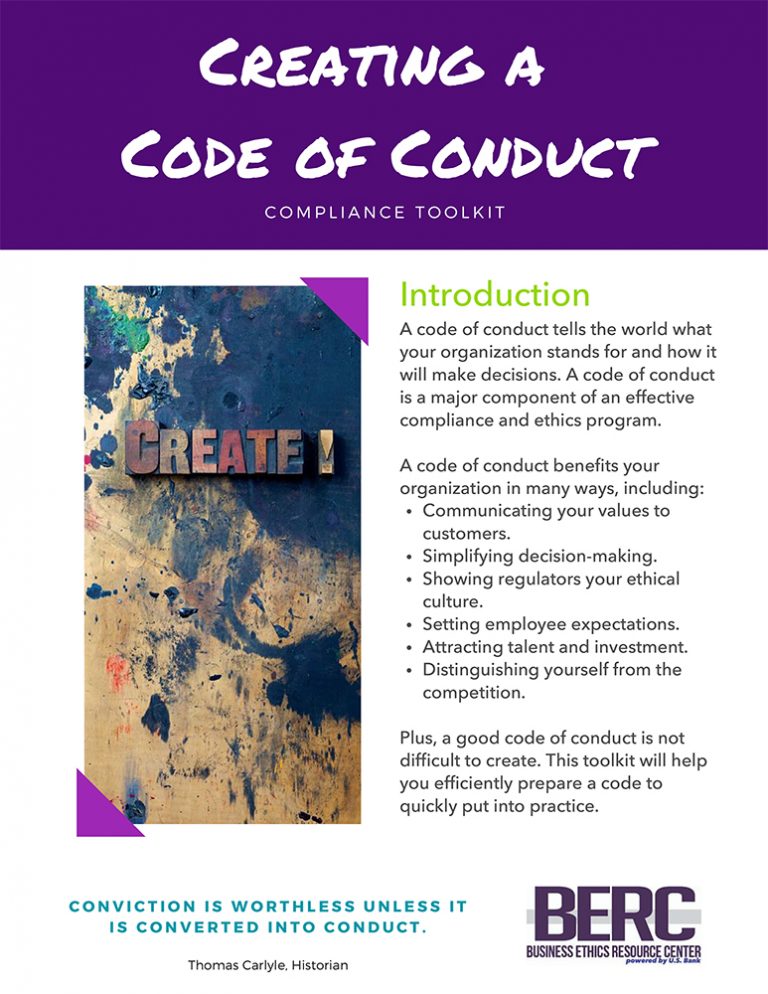As a business owner, there’s plenty of challenges that you know how to handle yourself, but what about when it comes to business ethics?
Ethics in business don’t come with an easy playbook or assigned advisor to help you manage them. Your CPA might be able to find financial impropriety, but that doesn’t mean they can help you deal with the individuals involved.
According to our survey of 301 small business owners and managers1, 63 percent “rely on themselves” when handling ethical issues. But there’s no reason you have to tackle these complicated problems on your own. There are several people you might want to consider to be part of your “ethics team,” including a few you might not have thought about.
Colleagues and business partners
Second to those who handle ethical issues themselves, respondents were most likely to rely upon other employees at their company or their business partners for advice. There are obvious reasons for this – other employees know the details of your business, including where the opportunities for impropriety are, and also might know the individuals involved.
However, that closeness to the situation can be a double-edged sword. Other employees may also have personal relationships – good or bad – with those involved in the ethical dilemma, thereby impacting their judgment. In instances where misconduct has resulted in positive impact to the business, employees – particularly partners – also may have a difficult time being impartial knowing that they, too, stand to benefit from the questionable behavior. In situations like that, it may be wiser to consult somebody outside the business.
Legal counsel
For many, the most obvious source of legal counsel would be their attorney, and that instinct is often correct.
“If I were speaking with a business owner, I would definitely direct them toward a reputable attorney who deals in business law – preferably one who I know,” said Shad Bris, Business Banking sales manager for U.S. Bank in the Seattle area.
But not all attorneys are created equal. Your patent attorney might be of great help if you’re worried an employee is misusing intellectual property, but less helpful in a situation involving harassment.
“An attorney with the right background can be a solid resource, but it has to be someone who has dealt with situations like yours, so never hesitate to ask for a referral,” said Erica Salmon Byrne, executive vice president at Ethisphere.
Law enforcement
For certain kinds of ethical issues, particularly those that deal with physical or financial harm to individuals or businesses, it may be appropriate, or even necessary, to involve law enforcement. Crimes such as embezzlement or other kinds of theft, as well as situations where people or property have been put in harm’s way, might require you to go to the police in addition to your legal counsel.
If problems do rise to this level, businesses should avoid the temptation to “sweep things under the rug” to prevent trouble – after all, if it happens to your business, what will stop it from happening to somebody else’s?
Others in your industry
Even if they are technically competitors, having good personal relationships with others in your industry can be quite useful in many scenarios, including ethical advice.
As Javier Iglesias, vice president of Business Banking for U.S. Bank in Irvine, California, notes, “We also ask clients if they have any colleagues and competitors that they stay in touch with, just so they have somebody else [to turn to] who has a similar type of challenge in their business.”
Although competitors may not want to hand you their trade secrets, they probably do want to see others in the same industry operating as ethically as they are.
Trade organizations
Another outside source could be one of the specialty organizations that are dedicated to helping companies like yours address ethical challenges. These include the Society of Corporate Compliance and Ethics, Compliance Week, and The Ethisphere Institute. These, and other groups, offer resources and conferences geared to helping companies start and grow ethics programs.
Accountant
As the person most in touch with your finances, your CPA is quite likely to be the first person to spot any sort of financial misdeeds. As such, their input into a situation should be valued because they have the experience to discern discrepancies that might result from ignorance, accident or malfeasance.
Even with nonfinancial ethical problems, you still might want to ask your accountant what they think, according to banker Bris. “CPAs are very good centers of influence and are typically well-connected,” he says, “and they should be able to provide other advisors depending on what you’re dealing with.”
Banker
One of the most underrated resources available to small businesspeople might be their own community banker. Good bankers develop intimate relationships with their clients, getting to know the in’s and out’s of their businesses. For this reason, your banker might actually be in a decent position to advise you on a range of ethical issues.
Banks and other financial institutions offer a range of services that can mitigate, or even prevent, the damage from an ethical breach if they’re engaged before serious wrongdoing occurs. Given the number of clients with whom they interact, bankers have oftentimes “seen it all” and might even have other clients who have experienced issues similar to your own with whom you could consult.
This article originally appeared on U.S. Bank’s Financial IQ site. Used by kind permission of U.S. Bank.


